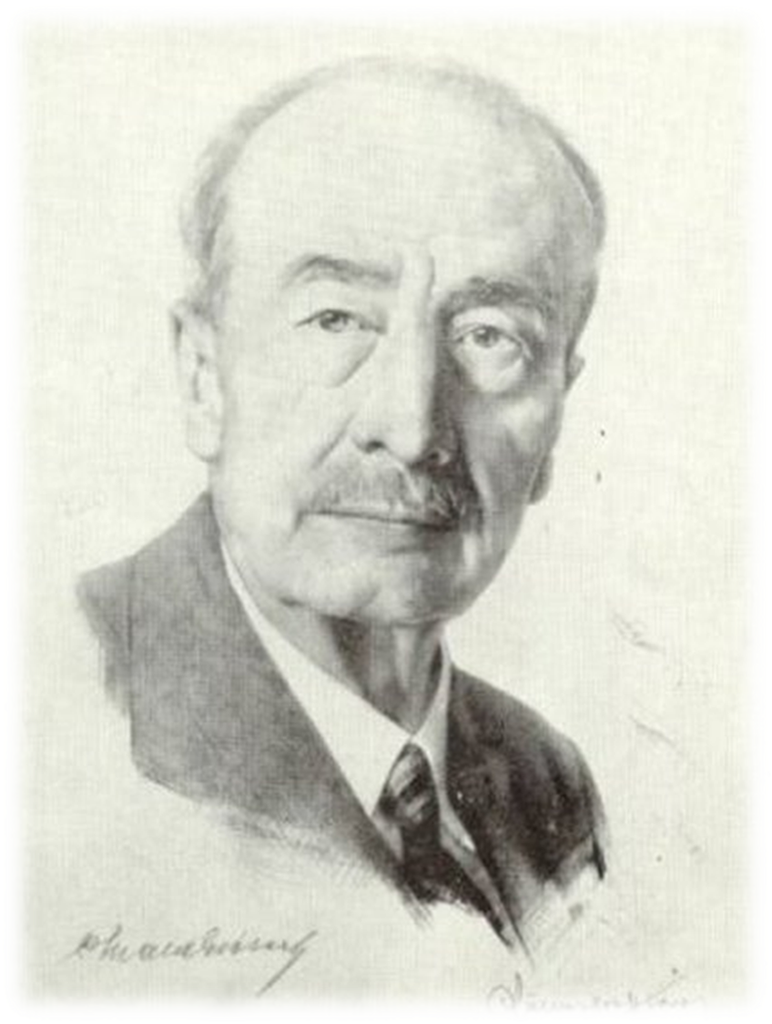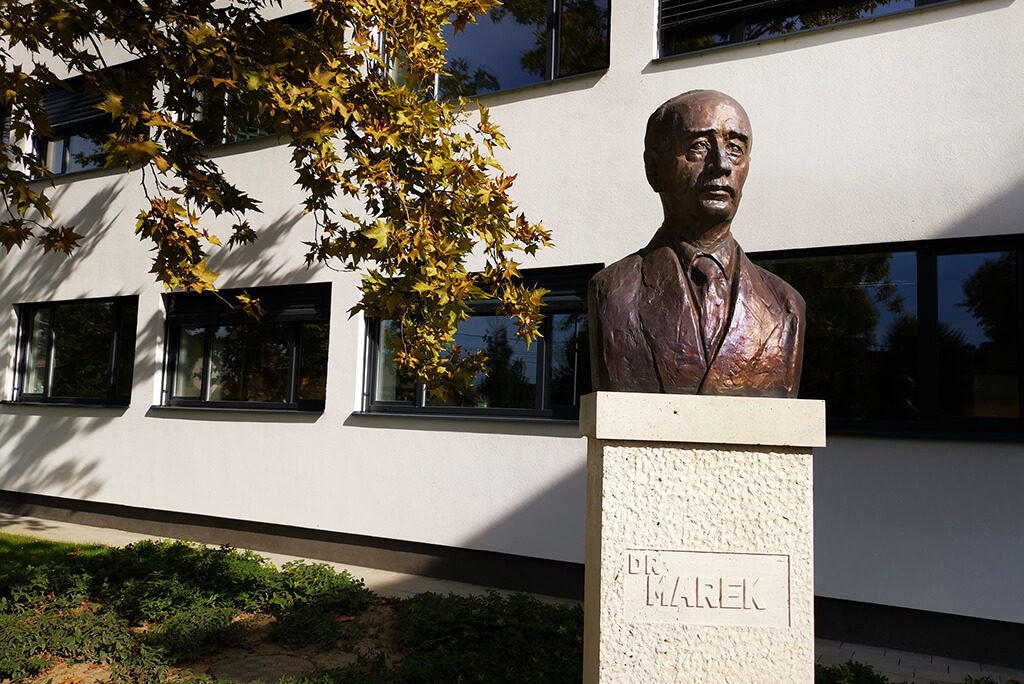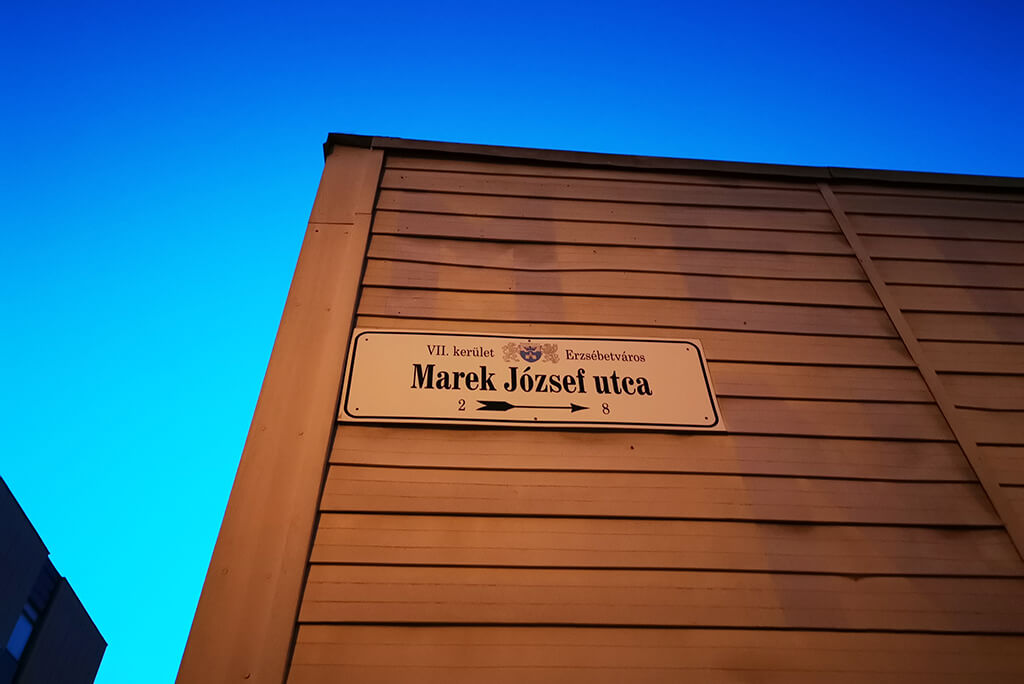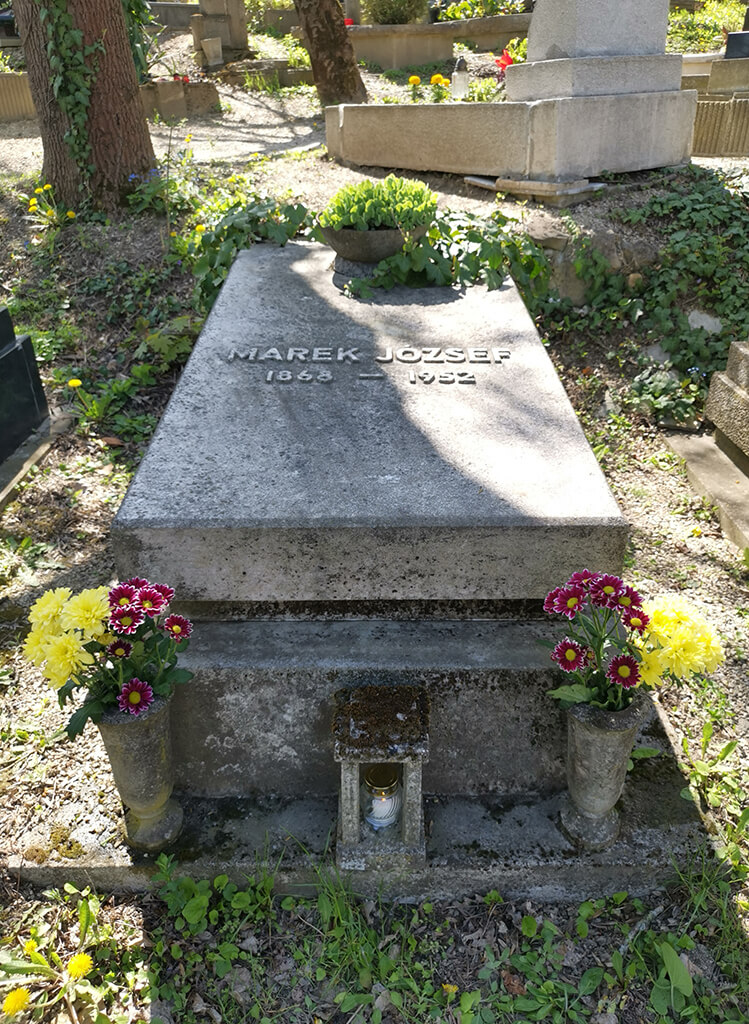our namesake
The main building of the former Dr. József Marek Agricultural Secondary School was renovated and modernised in 2017-2018. The renovated building houses a veterinary laboratory unit and the administrative headquarters of our company.
The laboratory is named the Dr. József Marek Veterinary Laboratory in honour of the school and its veterinarian namesake.

Dr. József Marek
Dr. József Marek, former professor at the Budapest University of Veterinary Medicine, is the world's most famous Hungarian veterinary scientist. He is credited with the discovery of a very important viral poultry disease that still exists today. The disease, which was later named after him, is well known to all veterinarians and poultry experts in the world.
József Marek (Vágszerdahely, Nyitra County [now Horná Streda, Slovakia], 19 March 1868 - Budapest, 7 September 1952), veterinarian, doctor of philosophy, university professor, Kossuth Prize winner, academician. Founder and head of the independent Department and Clinic of Internal Medicine at the Veterinary College.
His main areas of research include: equine breeding-paralysis and so-called colic diseases, distomatosis, rickets, and Marek's disease, named after him.
He was a member of numerous scientific associations, societies and organisations both at home and abroad. He was elected a corresponding and then a full member of the Hungarian Academy of Sciences, serving as department chairman from 1940; he was later chairman of the Department of Biological and Agricultural Sciences, and then of the Department of Agricultural Sciences.
In addition, he was Corresponding Member of the American, English and French Veterinary Academies, Honorary Doctor of the Universities of Leipzig, Sofia and Utrecht, Honorary Doctor of Hanover Veterinary College, President of the Hungarian National Veterinary Council, Member of the Hungarian Association of Dermatologists, the National Council of Higher Education, and the National Council of Natural Sciences, and Honorary Member of the Hungarian National Veterinary Association and the Hungarian Society of Pathologists.
His major honours include the Hungarian Cross of Merit, the Order of Franz Joseph Cross of Honour, and the Kossuth Prize in 1949, the pinnacle of his career.

His main works
- Clinical Diagnostics. Budapest, 1902
- Ferenc Hutyra - József Marek, Veterinary Internal Medicine. Volume I. Infectious Diseases. Volume II. Diseases of Organs. Budapest
- Detection of Glanders by Biological Methods, in particular the Mallein Test, Budapest, 1915
- Franz Hutyra - Joseph Marek, Spezielle Pathologie und Therapie der Haustiere. Bd. I-III. Jena. 1144 pages
- József Marek -Oszkár Wellmann, Rhachitis, in relation to its Causology, Metabolism, Pathophysiology, Pathology and Clinical Aspects. An Experimental and Comparative Study. Volumes I-II. Budapest, 1931, 1932
- József Marek - Oszkár Wellmann - László Urbányi, Studies on Mineral Metabolism in the Animal Organism. I-IX. Budapest, 1941
His memory
- The memory of József Marek is commemorated in the name of a street near the present-day University of Veterinary Medicine, renamed in 1958.
- The Foundation of the University of Veterinary Medicine bears his name.
- A statue of him is on display in the park of the University of Veterinary Medicine (by Ferenc Medgyessy, 1954).
- His bust (by Judit Englert) has stood in the arcade of the Kossuth Square building of the Ministry of Agriculture since 1978.
- In 1974, the University of Veterinary Medicine established the József Marek Memorial Medal in his honour and memory.
- A street in Komárom was named after him in 1981, the same year that his limestone memorial relief was unveiled, a work by Walter Madarassy, bearing the inscription “Master of the world's veterinarians”.
- The agricultural secondary school in Mohács, which has since closed, also bore his name. The veterinary laboratory currently operating in the former school also bears his name in honour of the school and its veterinarian namesake.
- More than half a century after his death, in 2007, he was posthumously awarded the Hungarian Heritage Prize.

Professor Marek was buried on 11 September 1952 in Farkasréti Cemetery. 12 years after his death, the Society of Veterinary Surgeons of the Hungarian Agricultural Association, on behalf of the Hungarian veterinary faculty and with the financial support of the Ministry of Agriculture, had a white marble tombstone erected on his grave.

Sources:
Dr. Pintér János https://mek.oszk.hu/00000/



